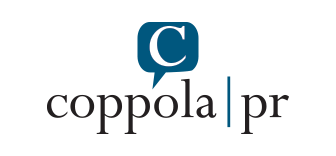Media Training and Coaching

Recently, I was asked to perform a media training and coaching session for a client I’d not worked for in an ongoing, proactive public relations capacity. Although this type of training can stand alone in some cases, media training and coaching is usually coupled with an annual PR campaign, special project or a special initiative like launching a new service or product, opening a new location/expanding or some other news-related trigger event.
I was able to perform the one-time media training for the individual who requested it. But here are some tips if you are considering hiring a media trainer for either a short-term project or an annual PR campaign:
-
Have a Goal– Why are you training? Is it a crisis? Will there be an outreach campaign post-training? Or is this just an informational/familiarization effort in preparation for a future issue?
-
Spokesperson vs. Media Trained – Understand which one you’re training. Are you trying to familiarize your entire C-suite to be prepared for media? Do you have one company or organization spokesperson in mind?
-
Messaging – the best training happens when you’re dealing with real world issues or concerns. Does your company have messaging it should be trained to deliver? PR consultants can help develop your messaging for training if it doesn’t yet exist. This is an important step.
-
Media Format – What kind of media training would best suit the company? Preparation for broadcast – live or taped radio or TV? Or print – newspapers, magazines and trade publications. Or are you training for a future PR effort that will cross all the styles and news outlets in your industry or market?
-
Media Policy – Does your company or organization have a media policy? Typically policies deal with who can talk with media about what subjects and how requests are handled. Do they go through a PR or marketing department? What does the receptionist do if reporters or writers show up unannounced? Who is immediately activated in the case of crises? Making sure the entire staff understands your media policy and procedures will help avert misunderstandings or delayed media responses in both positive and challenging times. Your PR pro can help write your media policy if you don’t yet have one.
-
Plan for Training – training and coaching takes time. Block off at least a four hour session depending on the depth of training. Your PR pro will develop a presentation for the session and facilitate that session the day of training. The best training sessions are custom to the company or situation – a PR consultant may need some time to familiarize themselves with the issues before training.
-
Keep an Open Mind – Media training sessions are built not only to inform and coach but to give you some edge in dealing with news media. Be prepared for discussions on how to partner with the news media to deliver your messages. Check your news media biases or misconceptions at the door – the best media training sessions will help you understand how the news business works, what reporters are looking for and how you can help them. You’ll get a better understanding of how journalistic ethics and PR ethics work hand-in-hand for the best possible outcomes. It’s not about manipulating media – it’s about being open, transparent, truthful, accessible and helpful.
-
Find the right trainer – A public relations consultant or agency are both great options. Look for a facilitator with experience across multiple industries. Find a consultant or company that will partner with you to customize your media training – there’s not a one-size-fits-all solution. It’s often beneficial to find an accredited (APR) or certified (CPRC – Florida only) PR practitioner. Some PR pros also have a background as working journalists. Often they offer an “insider” view of the news media.
